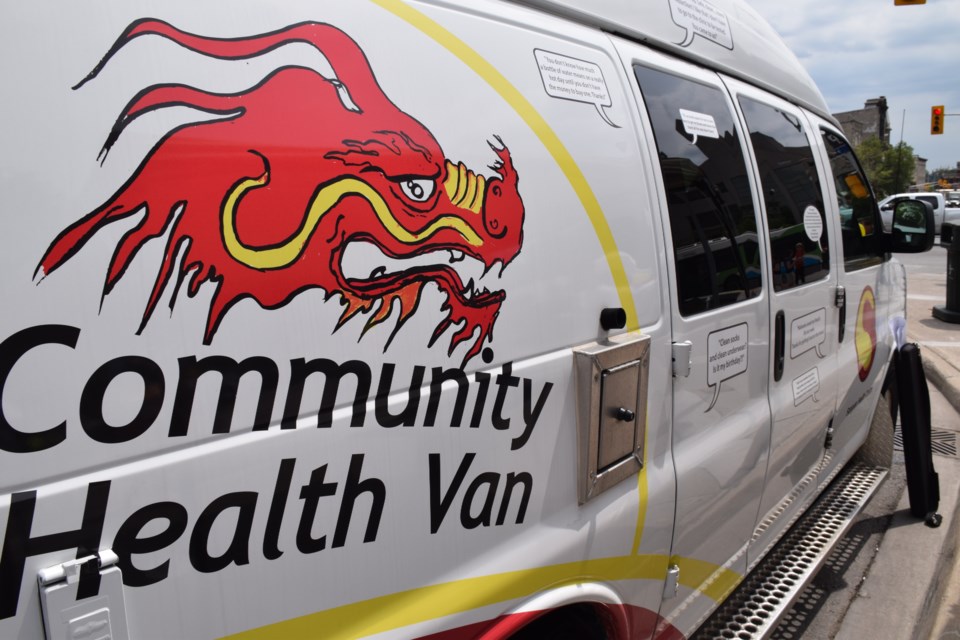The funding for Sanguen Health Centre’s community vans is coming to an end, but that doesn’t mean the program is.
The vans were launched in 2015 as part of their community outreach program, aimed at helping those who struggle to access health care services in traditional settings.
Typically, those experiencing homelessness, dealing with substance abuse or mental health issues – “things that make it difficult for them to access services in a fixed location, or come to an appointment at an office at a specific time,” said Michelle Steingart, administrator and clinical program coordinator for the Sanguen Health Centre.
The team drives out to locations where people are camping or temporarily residing, and rural areas where services are sparse, offering things like medical assessments, emergency contraception, naloxone kits, clothing and supportive counselling.
In the beginning, she said they only had one van, and a small team of people; now, they have three vans serving Guelph-Wellington-Dufferin, Kitchener, Cambridge, and Waterloo.
“Our reach has increased significantly over the last several years,” she said. In a three-month period, the program
Federal funding from Health Canada’s Substance Use and Addictions Program (SUAP) enabled them to expand their fleet of vans, and therefore increase their community reach, especially in rural areas.
In a three month period, the outreach program has a reach of about 7,000 visits, which could be anything from someone coming to get food or returning harm reduction supplies.
To run the entire program across Waterloo Region and Guelph-Wellington-Dufferin costs about $450,000 a year, which the funding from SUAP provided. That includes paying their eight full-time staff, and 15 to 20 peer workers who assist with the programming, plus supplies, van maintenance and fuel.
But it was only designed to be a two-year grant, with the intention that during those two years, the Sanguen team would make more community connections and secure funding elsewhere.
“We knew this was a finite amount,” she said. “There was hope that perhaps there would be additional federal funding to extend the program. Unfortunately, that doesn’t appear to be the case.”
But she said that doesn’t mean the program is going to end; they have some private funding coming in, and some meetings with the Region of Waterloo to secure more partnerships and funding.
With less funding, they might have to reduce the hours and the number of staff, but she said they’re doing everything they can to secure more funding going forward, including applying for grants and municipal funding, private donations, and through community partnerships.
“We’re going to do everything we can to make sure this continues to be a very robust outreach program,” she said. “We will be ensuring there will be support out there for folks. Just in terms of how and how much, that may change.”
Currently, the van runs on Tuesdays, Wednesdays and Thursdays in Guelph-Wellington-Dufferin; in Waterloo Region, it runs Monday through Friday.
The vans are still running on that schedule for the time being, and there is no set time as to when the hours would have to change to accommodate less funding.
